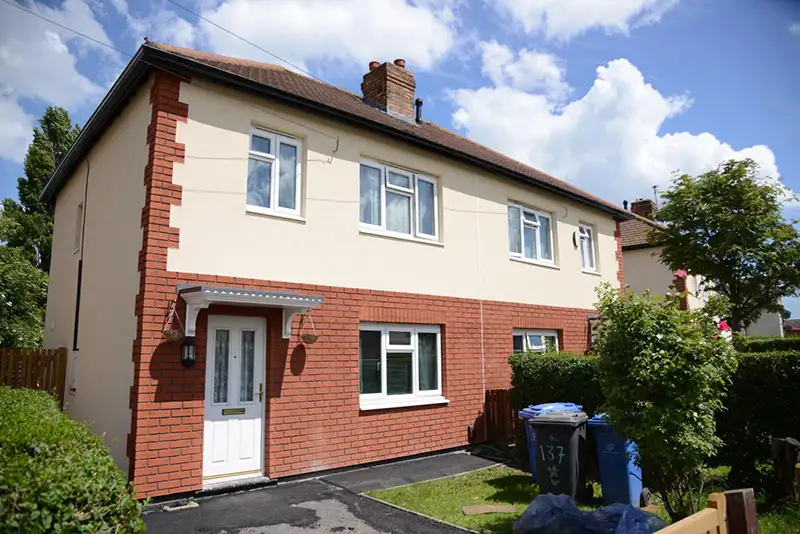
This Update includes the following
Social Housing Rent Consultation
CWAG has submitted a joint response to the Social Housing Rent Consultation with the Association of Retained Council Housing (ARCH) and the National Federation of ALMOs (NFA).
The response focusses on the importance of achieving a ten-year settlement based on CPI +1% plus an annual allowance for convergence.
Drawing on analysis undertaken by Savills for the social housing sector in December 2024 the response makes the case that whilst the proposed longer term rent settlement based on CPI plus 1% would be helpful, it would be insufficient to bridge the immediate funding gap between income and expenditure requirements and will need to be bolstered by additional measures.
The Savills research demonstrates that CPI +1% over 10 years with a convergence policy to bring all local authority rents up to formula would make a material improvement both in the short and longer term, bringing the national HRA to a cumulative surplus within 10 years (based on a convergence amount of up to £3/week). In practice therefore additional funding will be required to deliver newbuild in the short to medium term.
Local Authority Claims Harvesting Survey Report
This survey of Right to Repair claims harvesting activities across the local authority sector is a joint NFA, CWAG, ARCH project, which is also supported by the Local Government Association (LGA) and Housing Ombudsman Service (HOS). The survey work was carried out by the NFA on behalf of the group.
The survey brings together currently available data on the activities of claims harvesting companies in the 31 authorities that responded to the survey. This data is a valuable starting point for developing an evidence base on the scale and cost to landlords of claims harvesting activities, as well providing detailed case studies and documentary evidence around unscrupulous practices and the impact on tenants.
The report highlights concerns that the proposed implementation arrangements for Awaab’s Law risk significantly worsening the scale and impact of claims harvesters on the sector and makes the case for a number of relatively straightforward policy changes – see recommendations below. These proposals would not impact tenants’ ability to bring disrepair cases against their landlords but would be a major step forward in tackling poor practice in the sector.
Recommendations
- Introduce fixed recoverable costs in housing disrepair cases.
- Cap the maximum proportion of a compensation award that a claims management company can take, and cap the referral fees that solicitors pay to Claims Management Companies.
- Set out clearly in regulation the steps that must be taken before a disrepair claim goes to court, including giving the landlord a reasonable opportunity to resolve the problem through the landlord’s complaints process and the Housing Ombudsman Service.
- Strengthen penalties against poor practice.
- Review and increase the £1,000 threshold for repairs which has been in place since 1991 to stop claims harvesting companies from artificially inflating repairs costs just over the threshold.
- Regularly gather data from local authorities on claims harvesting and disrepair so government can monitor the impact on Housing Revenue Accounts over time.
The full report is available to CWAG members – contact the Policy Officer for further details.
Recent Publications
Housing Revenue Account Research Update – Savills (October 2024)
This report into financial pressures on council Housing Revenue Accounts (HRAs) was undertaken by Savills for the LGA, ARCH and the NFA. It updates earlier work by Savills in late 2022 and early 2023 and includes a reworking of the sector’s capital investment needs over the next 30 years (at todays prices) as well as the latest information on additional revenue pressures arising from the Awaab’s Law changes, enhanced regulation and new professional qualification requirements for housing staff.
Housing Revenue Account research update | Local Government Association

Right to Buy is Broken – the case for change – Yorkshire Housing
Published at the same time as the Government’s consultation on changing the Right to Buy scheme, this report sets out more radical approach that would both reverse the loss of social housing through Right to Buy and provide a fairer system to help more people achieve their home ownership ambitions.
yhl-7807-right-to-buy-is-broken-031224.pdf
Sector Risk Profile – Regulator of Social Housing (RSH) – October 2024
The RSH has published the 2024 Sector Risk Profile which is an annual overview of the most significant risks currently facing social landlords. This year the report highlights increasing risks around viability as financial performance continues to weaken in the face of both internal and external pressures.
With financial capacity within the sector increasingly strained, landlords are prioritising investment in existing stock, a trend that is likely to continue as government moves forward with plans for a new Decent Homes Standard, as well as Minimum Energy Efficiency Standards, and new requirements in terms of professional standards through new Competence and Conduct requirements. However, government is also expecting the sector to support delivery of a substantial newbuild social / council house building programme as part of the policy to build 1.5 million homes over the next five years.
The introduction of proactive consumer regulation and the associated inspection regime also brings new pressures and risks as landlords must demonstrate they are delivering against the consumer standards, providing assurance which is underpinned by accurate, up-to-date and complete data. Additionally for Councils with ALMOs it is essential that the landlord maintains oversight of service delivery; failure to do so risks tenants’ safety and the quality of homes, as well as damaging the landlord’s reputation.
Sector risk profile 2024 – GOV.UK
2023/24 Tenant Satisfaction Measures (November 2024)
The RSH has published its analysis of the results from the first year of Tenant Satisfaction Measures (TSMs) as well as its National Tenant Survey.
TSMs are primarily intended to help tenants hold their landlord to account in key areas, including repairs and maintenance, and complaints handling. They also provide valuable insights which landlords can use to improve their services. Although the collection format does not allow direct comparison of TSMs between landlords, they provide an important source of information for the RSH ‘s ongoing regulation of the sector. The National Tenant Survey is an independent survey, commissioned by RSH, to provide greater insight into the factors that influence TSM results.
The key findings are:
- The biggest driver for overall satisfaction is a tenant’s view of their landlord’s repairs service and how well their home is maintained.
- Most social housing tenants (over 70%) are satisfied with their landlord’s service, feel their home is safe and well maintained, and that their landlord treats them with fairness and respect.
- However, around one in five tenants not satisfied with their landlord’s service, and only one third of affected tenants are satisfied with the way their landlord handles complaints.
- Shared owners are the least satisfied, with only around 50% satisfied with their landlord’s overall service.
Housing Ombudsman Reports – Learning from Severe Maladministration
The Housing Ombudsman has published two new reports focussed on severe maladministration cases which aim to prepare the sector for the introduction of Awaab’s Law.
Taking the key lessons from our severe maladministration decisions – (October 2024)
This report focusing on ‘damp and mould – timeliness’ considers HO casework where landlords have struggled to respond appropriately to reports of damp and mould, with unacceptable delays and deteriorating living conditions often experienced by tenants.
Several of the case studies include significant compensation orders and the rationale underpinning them. Awards are intended to reflect the impact of issues such as compromised living conditions, partial loss of the use of the property, damage to possessions as well as the circumstances of the household including health issues or the presence of children. Awards are individual and specific, rather than formulaic. The examples are intended to help landlords better understand compensation issues taking account of what is fair and reasonable in the specific circumstances.
Learning from Severe Maladministration (housing-ombudsman.org.uk)
Taking the key lessons from our severe maladministration decisions – Dealing with Hazards (December 2024)
Property condition is the top complaint category at the Ombudsman and many cases involve the presence of hazards in the home and their associated risks. The report highlights cases where landlords have failed to identify the need for more urgent action where a hazard is present.
Key learning points include the need to be much more proactive in identifying and responding where there are potential hazards. Also, the importance of taking account of household circumstances and vulnerabilities so there is effective risk assessment and triaging of cases.
Learning from Severe Maladministration Learning from severe maladministration report looking at dealing with hazards
Diary Dates
Finance and Business Planning Meeting – Wednesday 22nd January 2025
Steve Partridge – Savills Director of Housing Consultancy will be leading this event for finance officers and others with an interest in HRA strategy and business planning. The event is a free event that is open to CWAG members. To book a place, contact the CWAG Policy Officer.
LGA Webinar – Update from the Regulator of Social Housing – Monday 27 January 2025, 10.00am – 11.00am
This is an opportunity to hear Angela Holden, Director of Regulatory Engagement at the Regulator for Social Housing (RSH) give an update on the work of the Regulator since the introduction of the new inspection regime. Further details and information on how to register are available on the LGA Website
